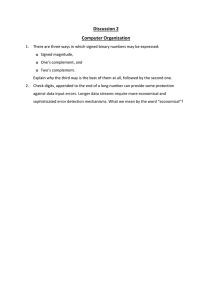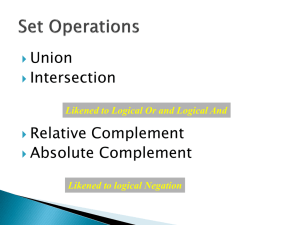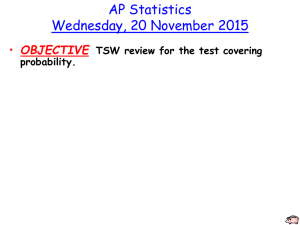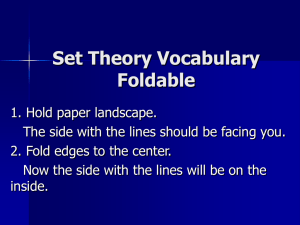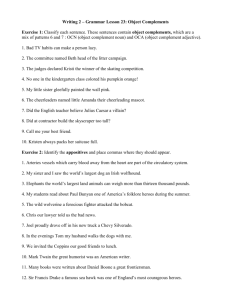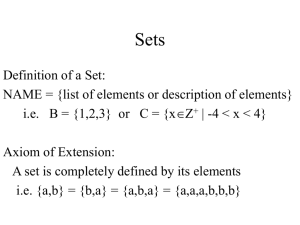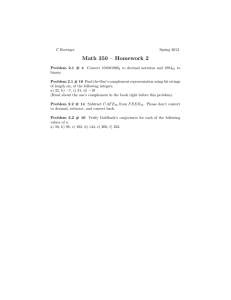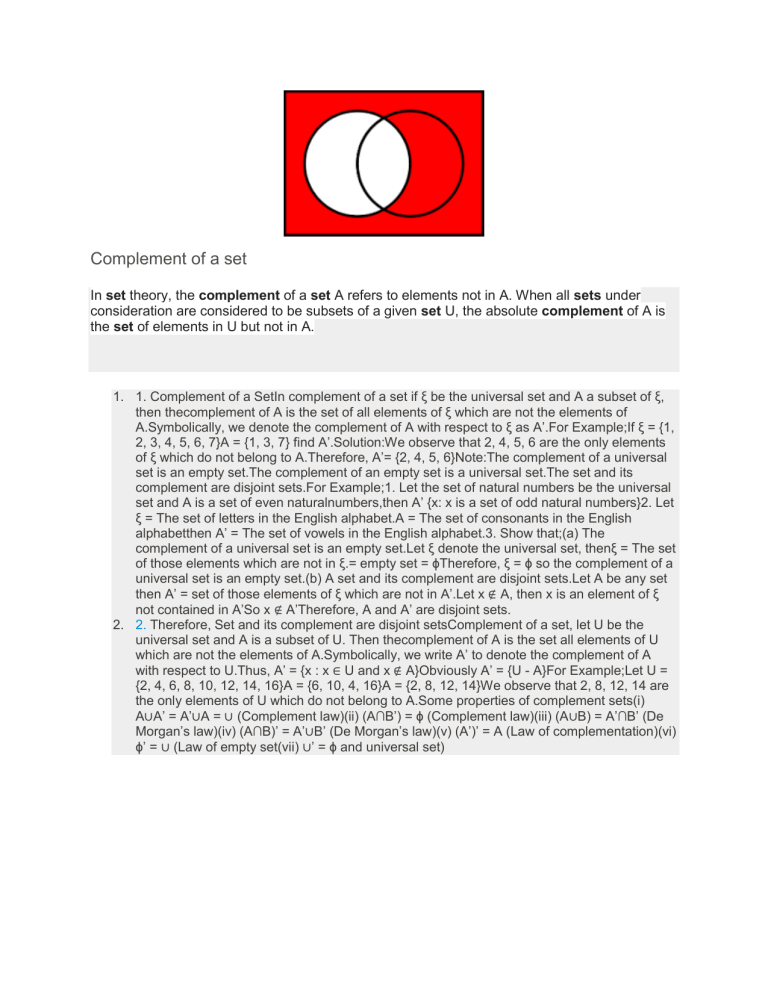
Complement of a set
In set theory, the complement of a set A refers to elements not in A. When all sets under
consideration are considered to be subsets of a given set U, the absolute complement of A is
the set of elements in U but not in A.
1. 1. Complement of a SetIn complement of a set if ξ be the universal set and A a subset of ξ,
then thecomplement of A is the set of all elements of ξ which are not the elements of
A.Symbolically, we denote the complement of A with respect to ξ as A’.For Example;If ξ = {1,
2, 3, 4, 5, 6, 7}A = {1, 3, 7} find A’.Solution:We observe that 2, 4, 5, 6 are the only elements
of ξ which do not belong to A.Therefore, A’= {2, 4, 5, 6}Note:The complement of a universal
set is an empty set.The complement of an empty set is a universal set.The set and its
complement are disjoint sets.For Example;1. Let the set of natural numbers be the universal
set and A is a set of even naturalnumbers,then A’ {x: x is a set of odd natural numbers}2. Let
ξ = The set of letters in the English alphabet.A = The set of consonants in the English
alphabetthen A’ = The set of vowels in the English alphabet.3. Show that;(a) The
complement of a universal set is an empty set.Let ξ denote the universal set, thenξ = The set
of those elements which are not in ξ.= empty set = ϕTherefore, ξ = ϕ so the complement of a
universal set is an empty set.(b) A set and its complement are disjoint sets.Let A be any set
then A’ = set of those elements of ξ which are not in A’.Let x ∉ A, then x is an element of ξ
not contained in A’So x ∉ A’Therefore, A and A’ are disjoint sets.
2. 2. Therefore, Set and its complement are disjoint setsComplement of a set, let U be the
universal set and A is a subset of U. Then thecomplement of A is the set all elements of U
which are not the elements of A.Symbolically, we write A’ to denote the complement of A
with respect to U.Thus, A’ = {x : x ∈ U and x ∉ A}Obviously A’ = {U - A}For Example;Let U =
{2, 4, 6, 8, 10, 12, 14, 16}A = {6, 10, 4, 16}A = {2, 8, 12, 14}We observe that 2, 8, 12, 14 are
the only elements of U which do not belong to A.Some properties of complement sets(i)
A∪A’ = A’∪A = ∪ (Complement law)(ii) (A∩B’) = ϕ (Complement law)(iii) (A∪B) = A’∩B’ (De
Morgan’s law)(iv) (A∩B)’ = A’∪B’ (De Morgan’s law)(v) (A’)’ = A (Law of complementation)(vi)
ϕ’ = ∪ (Law of empty set(vii) ∪’ = ϕ and universal set)
